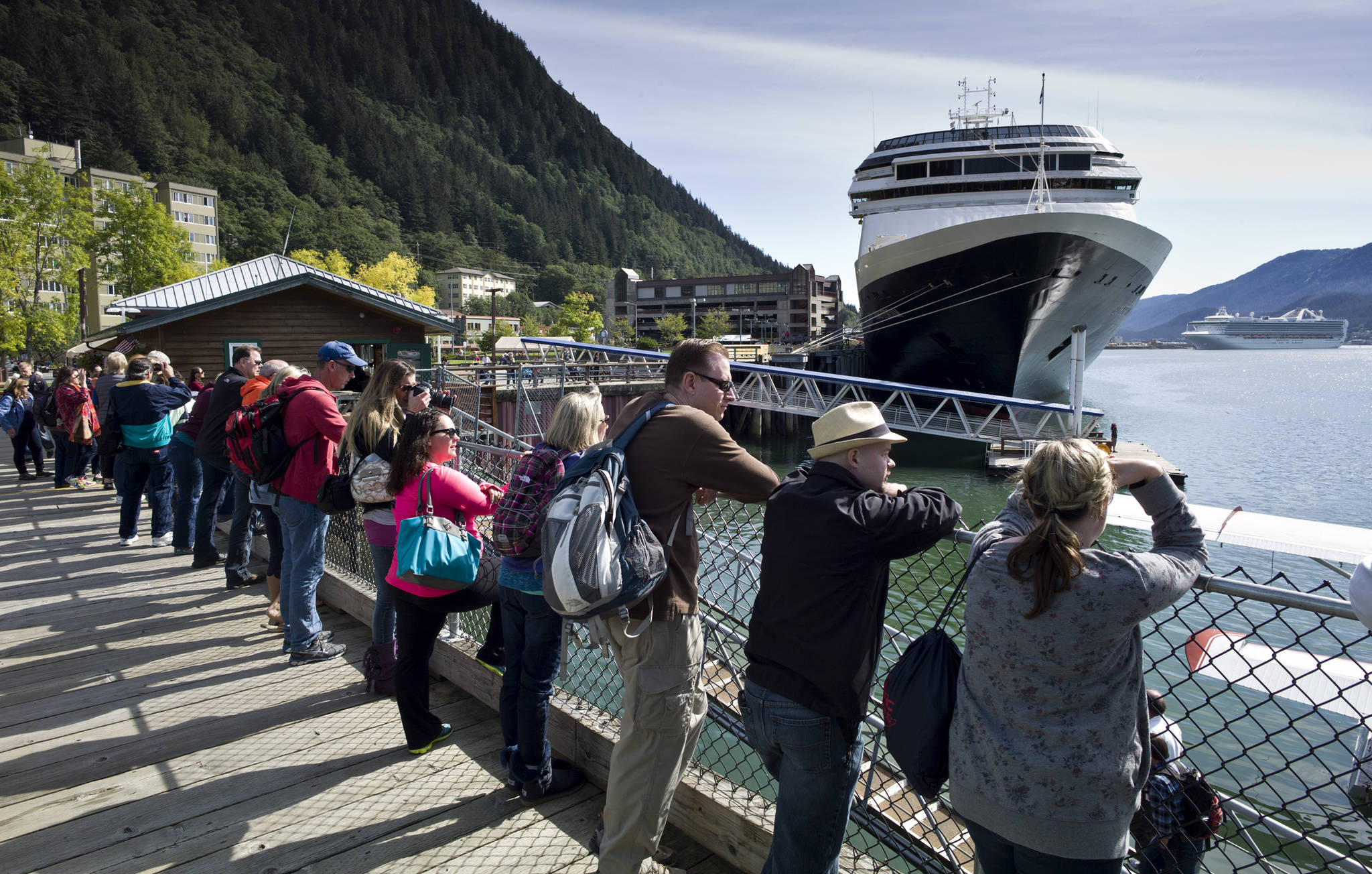The summer of 2020 is predicted to see record numbers of visitors to Juneau, most of whom will arrive and depart on cruise ships. This will challenge our community but also creates an opportunity to evaluate how we manage the visitor industry at a time of historic growth.
Mayor Beth Weldon’s decision to convene the Visitor Industry Task Force reflects how important this sector is to the economy, and how strongly people in Juneau feel about issues arising from the robust growth in tourism. Given how much the community benefits from visitors, and because their impacts are undeniably intense, we need to consider steps to ameliorate the situation.
[Would you participate in a tourism survey]
I love traveling; many of the places I enjoy most attract vast crowds like Juneau. The Hawaiian Islands are as geographically remote as anywhere on the planet, and 10 million people went there over the course of 2019 to enjoy the isles’ unique beauty, an average of 250,000 a day. Economic benefits of tourism are a fact of life in Hawaii, and locals do a great job encouraging tourists to consider how their behavior affects residents. Structural steps have also been taken to maintain residents’ quality of life, like concentrating visitor activity in certain places while keeping other spots less impacted. But the Hawaiian economy relies on tourism to a degree that simply could not be replaced with any substitute activity.
Juneau is fortunate to have lots of well-paid government workers and two world-class mines that pay good wages. As vital as federal, state and local government, Hecla Greens Creek, and Coeur Alaska — Kensington are, we still need the visitor industry. If it weren’t for tourism, many young people who grow up in Juneau would be unable to return after furthering their education Outside. So how to keep tourism working well for Juneau without sacrificing quality of life?
We are incredibly fortunate to live in a place that is as desired a destination as London, Paris, Rome, Florence or Venice.
The Netherlands are a small county with a total population of 17 million; the capital Amsterdam has only 1.2 million residents. It is amazing that almost 20 million people visited the Netherlands last year, and almost all of them went to Amsterdam. This has led to some frustration among the population, and one sees signs saying “No More Tourists” around town. But the Dutch local and national governments are not seeking arbitrarily to limit the number of visitors, and instead have a strategic approach to get more people to go to places beyond Amsterdam to spread the wealth and share the burden of being a coveted destination.
One way Juneau has responded to effects of the visitor industry is the Tourism Best Management Practices Program, which has brought tour providers together to explore how to create wonderful experiences while minimizing negative impacts on local life.
TBMP could be expanded to engage visitors, and encourage meaningful suggestions for mutually enjoyable, respectful visitor and local experience. This wouldn’t be an enforceable set of rules, but rather a way of trying to plant the seeds of sensitivity and awareness in the hearts and minds of those coming to experience our amazing natural beauty and culture. It could go a long way toward improving attitudes and actions, without draconian measures.
With the outbreak of the new coronavirus from China, it is likely that there will be even greater demand for domestic travel experiences in the United States.
While there may be a need to limit travel in response to a verifiable health emergency under such circumstances, this should not be the chosen method of managing visitors without such a clear and convincing need to do so. Building walls to keep people out, literally or figuratively, is at best a close-minded approach to immigration policy, and it is alarmingly like the methods sought by calls to deny people the right to visit Alaska. Such proposals appear to be at the top of the slippery slope to nativism and xenophobia, which I don’t want to see us slide down as Alaskans.
We can and should have a lively conversation in Alaska’s Capital City about how to ensure that those longing to visit our uniquely beautiful home do so in a manner that remains beneficial and minimizes harm and inconvenience.
But to tell others they just can’t come here isn’t going to work, and may well do more harm than good in the end. The community dialogue must continue, and real progress will be eventually be made.
• Benjamin Brown is a lifelong Alaskan, and and attorney who lives in Juneau. He wrote a regular monthly column for The Juneau Empire from October 2003 through May 2019. Columns, My Turns and Letters to the Editor represent the view of the author, not the view of the Juneau Empire.

